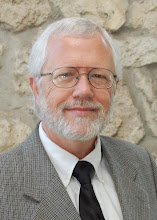Click "More" and you'll definitely get it: angels, ghosts, Nordic gods, Rosicrucians, African myths, benevolent "cosmic people." There's a collection of prophecies -- biblical, Mayan, Hopi, Nostradamus, Edgar
 Cayce, Our Lady of Fatima. There's some nice poetry from a variety of people, from William Blake to Omar Khayyam to Thich Nhat Hanh.
Cayce, Our Lady of Fatima. There's some nice poetry from a variety of people, from William Blake to Omar Khayyam to Thich Nhat Hanh.One site tries to show how England's Rosslyn Chapel -- featured in the movie The Da Vinci Code -- links the Masons with the Knights Templar. Another link offers a book titled Am I Crazy or Just Haunted? The free, downloadable book offers guidance on living with the paranormal.
As with any superdirectory, some of the classifications are up for debate. Yes, it's smart to put meditation and shamanism in their own categories; they bridge many faith traditions. But why is there a separate link for Sufism, a branch of Sunni Islam? Or for Veda, one of the Hindu scriptures? And why is native European spirituality separate from paganism?
It's also not great to see a lot of links that aren't so much resources as online catalogs. Sites like Cross Pendants Online, or the Bodyelement Yoga Studio, or the Eye of Horus Myth & Ritual Store.
Finally, although it may not need saying, "Buyer Beware." Just because it's on a Web site, doesn't mean it's accurate. An example: messianic groups -- i.e., Jews who became Christians -- are grouped under Judaism. Jewish communities object strongly to such mixing. The folks at All Things Spiritual should have known that.

3 comments:
OK, but, to play devil's advocate, some Jewish groups who claim a messiah still consider themselves as being part of Judaism. Because some Christians do not consider Catholics among their members or because some Muslims do not consider Sufis among their members, ought we consider Catholics non-Christian or Sufis non-Muslim? I agree that their are boundaries; if someone who calls themselves Christian believes that Krishna really is the incarnation of Vishnu, then we might be allowed to disagree with him that he's a Christian. But Judaism does expect a messiah, so belief in a Messiah is not an automatic out (I'd say). It's obviously a fine line and a difficult issue, but I don't think it's so easy as just not including messianic Jewish groups under Judaism.
Sorry, *there.
Sorry, I just saw your comments. Of course, from one angle it comes down to who says who's in the club. That's why, rather than try to arbitrate, I said "Jewish communities object strongly to such mixing."
For myself, I can see it both ways. Christianity is inherently Jewish, and Judaism is inherently messianic. But the vast majority of Jews -- now and throughout history -- have rejected the claim of Jesus to messiahship. And any Jew who accepts Jesus is drummed out of the club.
BTW, I've heard Krishna believers say that Krishna and Jesus were the same person. So Christians may not believe in Krishna, but Krishna believers consider themselves Christians.
Post a Comment